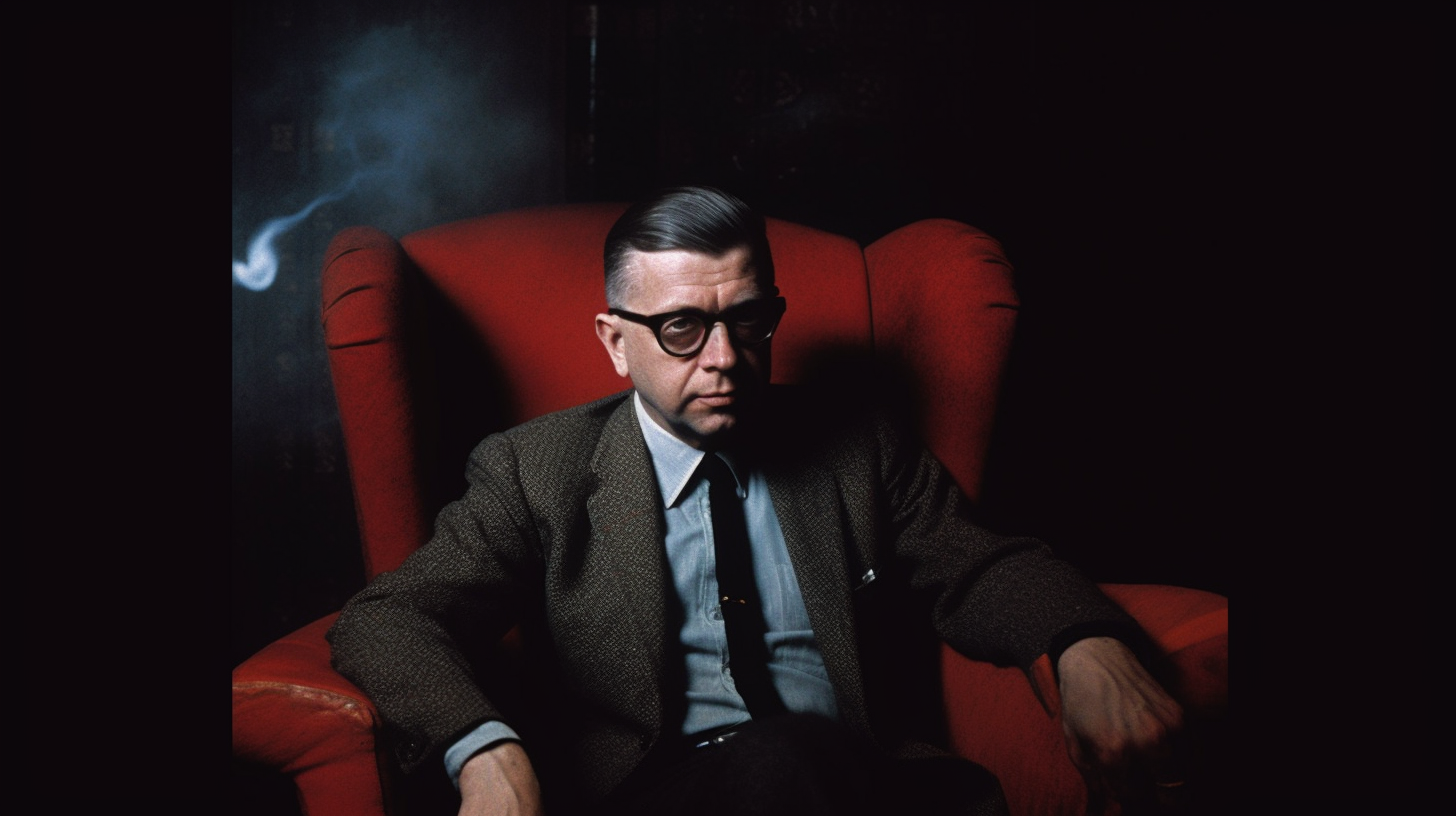The Philosophy of Freedom in Jean-Paul Sartre's 'No Exit'
In the captivating expanse of Sartre's theatrical opus, 'No Exit,' an intellectual odyssey unfurls, beckoning discerning minds to contemplate deeply. Here, existential inquiries intertwine with weighty musings on the philosophy of freedom, orchestrating a symphony of thought. Through the deft interplay of Garcin, Inez, and Estelle, Sartre unveils a vast intellectual terrain, meticulously examining the interplay between freedom, responsibility, and the intricate tapestry of human relationships. As we navigate the labyrinthine depths of their souls, the boundaries that shape their lives are unveiled, casting an unwavering light on the enigmatic concept of freedom.

Sartre's resounding proclamation, "Hell is other people," resonates as a haunting motif throughout the unfolding drama, reverberating within the very depths of our consciousness. Within the confines of their eternal entrapment, Garcin, Inez, and Estelle embody the human condition itself, their interactions encapsulating the inherent absurdity that permeates our mortal existence. Stripped of external moral precepts and authoritarian figures, the characters confront the raw essence of their autonomy, bearing witness to the weighty consequences of their choices. Sartre deftly posits that genuine freedom lies not in evading the existential abyss but in wholeheartedly embracing the very absurdity that defines it.
Within the chambers of 'No Exit,' introspection becomes an intellectual crucible where facades are ruthlessly stripped away, revealing the unadorned truth of each character's essence. Here, self-revelation unfurls as a continuous spiral, an unyielding struggle between existential choices and the relentless pursuit of authenticity. As they fix their penetrating gazes upon one another, the characters find themselves trapped in a delicate dance of self-scrutiny, bound by the inescapable chains of their freedom and the unrelenting judgment of their peers. The burden of personal responsibility becomes palpable within this perpetual process of self-reflection, and the intricate relationship between liberty and the shaping of one's destiny is laid bare in all its intricate complexity.

Yet, as Sartre's magnum opus gracefully unfolds, it is not solely the individual's freedom that commands our intellectual gaze but rather the intricate web of interdependence that weaves the very fabric of our existence. Garcin, Inez, and Estelle find themselves entangled in a delicate nexus of mutual reliance and psychological torment, revealing the paradoxical nature of freedom itself. Their actions and choices are inexorably entwined with the presence of others, exposing the intricate interplay between liberty, identity, and the societal expectations that weigh upon us. Sartre provocatively suggests that true freedom can only be attained through a lucid acknowledgment of our actions' profound impact on others, challenging the conventional notion of isolated individual autonomy.
Throughout the glorious tapestry of 'No Exit,' Sartre masterfully deconstructs the conventional understanding of freedom as an emancipatory force, unravelling its burdensome implications. The characters' plight, trapped within the inescapable confines of their consciousness and perpetually subjected to relentless scrutiny, engenders existential anguish that reverberates. Moreover, Sartre suggests that freedom carries an inherent weight of responsibility, an acute awareness that every choice, whether made or neglected, resonates with consequential significance. True freedom emerges as a complex dichotomy in this intricate dialectic of liberation and perpetual torment. This double-edged sword holds within it the potential for self-determination and the looming spectre of judgment.

Our take: As we bid farewell to the intellectual exploration of 'No Exit,' we are left with critical takeaways worth remembering. Sartre's magnum opus offers a profound meditation on the intricate nature of freedom, urging us to embrace the absurdity that defines our existence. It challenges our preconceived notions of isolated autonomy, revealing the profound interdependence that binds us. And within the burdensome weight of personal responsibility, Sartre invites us to recognize the immense significance of our choices, as every decision we make echoes with far-reaching consequences.
Speculating on the Good (καλός) inherent in this writing, we find that 'No Exit' becomes a beacon, illuminating the intellectual path towards self-discovery and authenticity. It compels us to question the nature of freedom and the intrinsic connections we share as social beings. By grappling with our choices' complexities and their impact on others, we are empowered to shape a more compassionate and responsible world. In this, Sartre's work offers us a cerebral journey and the potential for personal and societal transformation.

Plato Re-Imagined
This course offers 32 comprehensive lectures exploring most of Plato's dialogues. These lectures guide students toward a consilient understanding of the divine—a concept that harmonizes knowledge across disciplines and resonates with secular and religious leaders. As a bonus, Lecture #33 focuses on consilience, demonstrating how different fields of knowledge can converge to form a unified understanding.






